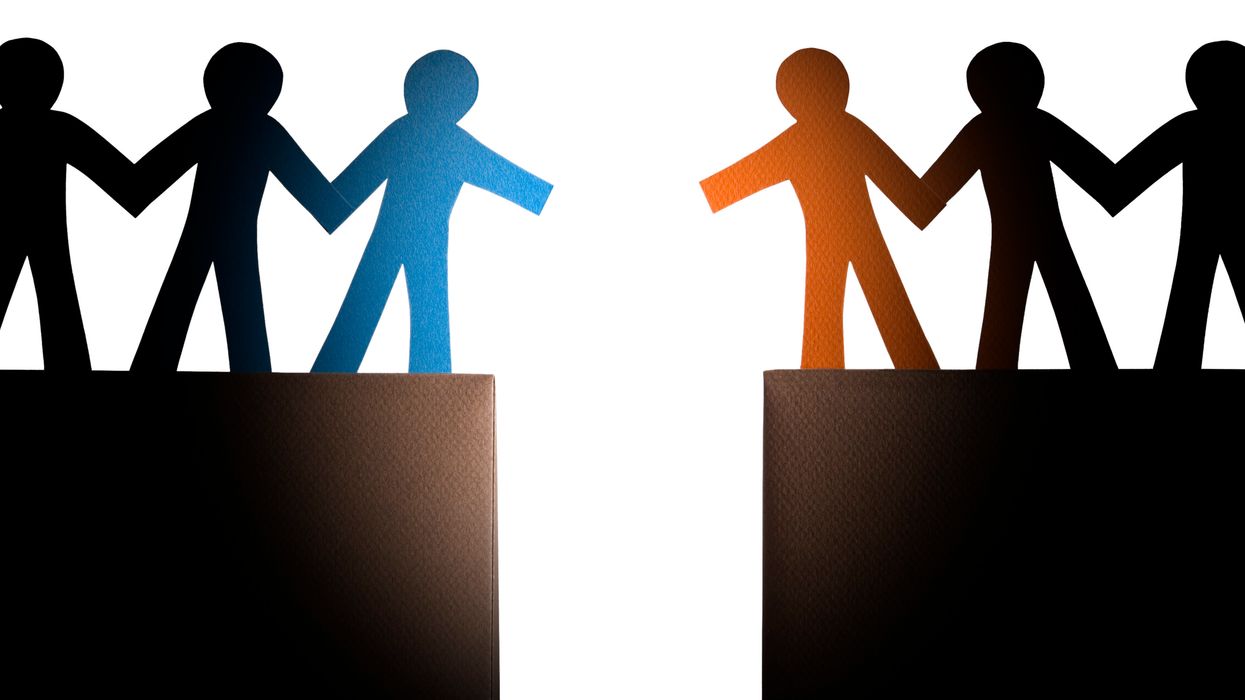I joined Unfortunately Not a Sound Bath, a conservative podcast club, because I needed answers.
Answers to a second Trump term:
- What made him win…again?
- Why was his narrative so compelling to Hispanic and Black voters?
- How did he win the popular vote while running on policies I believe make America less free, less just?
I wasn’t just shocked. I was paralyzed.
So, I stepped into conservative podcast culture to analyze their messaging, tone, and recurring themes. I didn’t join to be converted; I joined because dismissing half the country won’t save democracy. Understanding them might.
While I found it difficult to stomach Ben Shapiro’s defense of Elon Musk’s Nazi salute. I found myself agreeing with “Make America Healthy Again” stars, Dr. Casey Means and Alex Clarks’ distrust of big institutions and advocacy for natural health — right up until they infused their arguments with Christian superiority and traditional gender roles. It was hard to ignore the parallels between Jordan Peterson and Andrew Huberman’s ideas about human motivation and Sebastian Junger’s thesis in Tribe: that human beings require feeling competent at what they do, authentic in their lives, and connected to others to survive; Tribe’s teachings inspired my purpose-driven work with The Magnet Collective.
I didn’t agree with all of it, but I did expand my knowledge of generational, pervasive, nationwide challenges. Unexpectedly, I discovered something else: these were not just conservative ragers riffing, but strategic and often skillful storytellers.
While I joined UNASB to dismantle misinformation, I ended up confronting an uncomfortable truth: I didn’t really understand their reality. But these podcasters did.
These podcasters were compelling, entertaining even! And most importantly, they built relationships with the listener.
The podcasts we study in UNASB don’t flip me, belly side up, with the sudden urge to agree with conservative politics. Rather, they invoke a responsibility to engage in the nuance of a reality I haven’t lived, don’t understand, and until recently, put no action into trying to learn. If we want a democracy that reflects our values, we must move toward the discomfort, tension, and hard work of understanding someone else's truth. That doesn’t mean compromising who we are, but it does mean having the courage to step into spaces where we disagree and contribute to the conversation. Change, which we desperately need, comes from choosing the harder path — on purpose.
If you’re bold enough to defend American democracy and courageous enough to choose the harder path, I’m offering two steps you can take right now:
1. Don’t Make Convictions Your Cage
The 2016 trend to block my Trump-loving high school classmates is so, well…high school.
Follow back your cousin who voted for Trump. Your childhood friend who sees Palestine & Israel differently than you, ask them out for a shared bowl of hummus. And that MAGA-hat-wearing guy at your local cafe? Offer to buy him a coffee for his opinions, withholding judgment while you listen, and courageously share yours in return.
Radical? Not really. Talk to Daryl Davis, a Black man who persuaded over 200 KKK members to give up their robes. Or Mónica Guzmán, who created a curriculum for bridging political divides after her Mexican immigrant parents voted for Trump…twice. These aren’t stories of submission; they’re stories of radical courage. They’re stories of people who believed enough in their values to bring them into the batting cage.
2. Own Your Poison
You’re going to hear things that make your blood boil, ideas that insult your deepest-held values, and opinions that dismiss your history, your identity, and even your existence. From my recent conversations with more conservative voters, they share the same sentiments with us. Like two sides of a mirror, we’re both convinced the other can’t see us clearly, and in turn, both stung by the reflection.
If you’re waiting for a version of this work that’s clean, comfortable, and conflict-free, you're not looking for progress. You’re looking for what already is. And the political and social currents we’re in won’t build a freer America, but rather chip further away at the eroding foundation of our democracy.
A conversation with a more conservative voter isn’t about abandoning your principles; it's about knowing them so well, so bone-deep, so hard-earned that you can stand in a storm and still say: this is what I believe, and here’s why.
And should your “opponent” make a point you hadn’t considered, I urge you to dig deeper. Widen your lens. Be curious enough to ask why it resonates, because understanding is a prerequisite to progress in the name of something greater than a political party: a multi-racial, interfaith, diverse, and just America.
Progress isn’t made by people who avoid poison; it’s made by people who know how to taste it without letting it kill them.
--
I don’t know what the next version of bipartisanship looks like; if you find someone who does, message me. What I do know is that it must be co-created by Americans who want to preserve democracy. There are too many resources and ways to practice out there to let your personal discomfort, fear of the unknown, or, dare I say, hesitancy about having your perspective broadened be your excuse not to engage.
We can’t afford to flatten “the right” into a single stereotype or ignore the emotional and cultural resonance of their stories. And we absolutely cannot afford to believe that facts and numbers will dig us out of this manmade divisiveness we find ourselves in. We’re going to have to learn from, debate with, and compromise alongside right-wing voters.
This is what democracy demands of us.
Not just noise, but nuance.
Not just conviction but courage.
And if we’re serious about saving this country, saving democracy,
We must start the conversations now.
Sophie Levy is the Founder of The Magnet Collective: a professional development partner that centers connection, constructive conflict & conversation, and commitment to a shared purpose.




















Trump & Hegseth gave Mark Kelly a huge 2028 gift